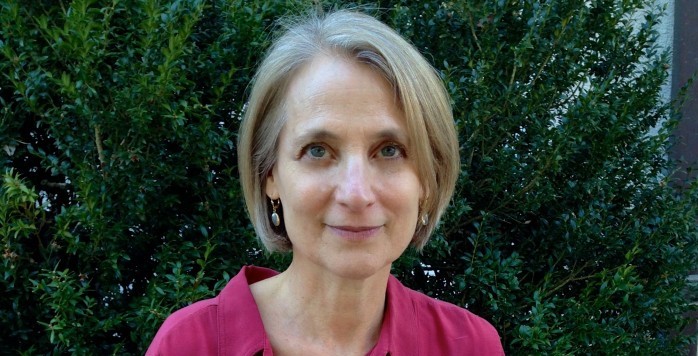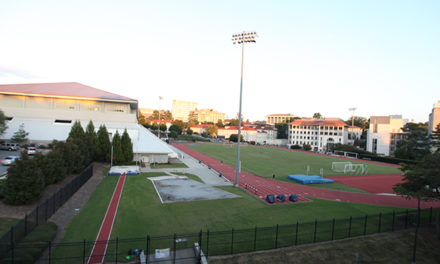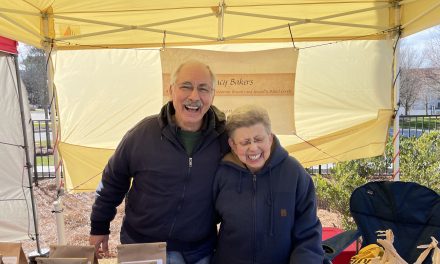
Professor Amy Aidman of the Film and Media Studies department
mentions that her new favorite movie is “Boyhood.” In matters of
TV, she is a “Breaking Bad” fan. | Photo Courtesy of Jungmin Lee
By Jungmin Lee
Meet Professor Amy Aidman, interim chair and senior lecturer of the increasingly popular Film & Media Studies program. A lover of films, Emory students and children’s media, Aidman sat down with The Emory Wheel to share, among other things, the inside scoop on Media Studies.
Jungmin Lee: The department of Film & Media Studies seems to be somewhat of a hidden gem at Emory. What would you tell students who are unfamiliar with Media Studies and are perhaps curious about the new major?
Amy Aidman: Well originally, we had majors and minors in just film. A few years ago we created a minor in media studies, which garnered a lot of student interest and led us to create a major as well. Both the minor and major are interdisciplinary, meaning that while the bulk of the courses taught are within media studies, students can also take classes from other areas such as sociology, anthropology or political science to name a few. So for example, if the Department of Religion has a class on religion and film, then we will collaborate with them to give our students credit for the major or minor.
JL: Why should students care about studying media?
AA: All our film and media studies courses teach how to be critical users of media – of film, television and web. Our media reflects our culture and vice versa, making it so integrated in our lives yet also something we don’t give much thought to. Your culture is awash in media so it makes sense for you to study media content and media systems. Also studying how researchers view media can give you a more critical perspective to what you’re already doing in everyday life. I think this idea of analyzing and evaluating is really important. You know, we’ve all been exposed to stories or rumors that turn out not to be true – it’s so important to check sources. Something we continually discuss is the intention of the media maker and distributor.
JL: You’ve been at Emory for a little while now – since 2008 to be exact. How has Film & Media Studies developed through the years?
AA: There has been an enormous amount of growth in the department. It was very small when I started and it has expanded to include a number of new fantastic professors with new areas of expertise. Now with a media studies minor and major, we’ve grown into a medium-sized department. We also host many programs like our Wednesday night film series and events with special speakers. Actually, Henry Jenkins, a very well known media scholar from the University of Southern California is coming on Monday, Nov. 10 at 4 p.m.! His talk will be a part of our celebratory launch for the media studies major, where we’ll be discussing the major with anyone interested.
JL: So before beginning your doctoral studies, you were a film and video producer in the U.S. and even Israel. Can you tell us more about that experience?
AA: I was always interested in writing and storytelling. What really excited me about producing was the ability to tell a story with visuals and sound in addition to the words. It was like putting together a huge puzzle. I learned that it’s such a complex process. You start with an idea, create it on paper and ultimately move that idea into the editing room where the decisions you make there bring it all together. I was doing work in educational and government institutions that I enjoyed, but I decided to get a Ph.D in Communications Research since I had always wanted to investigate children’s media and learn how media influences childhood.
JL: In addition to your role as interim chair of Media Studies, you are a senior lecturer and have taught everything from introductory courses to an advanced class on the history of American television. What do you enjoy most about teaching at Emory?
AA: Well I think Emory students are terrific – really smart, engaged people. When I first started teaching here, I was so surprised because so many students after every class would thank me – I love that! It’s unusual. Believe me, it makes a difference to professors if you can thank them. Hmm, what else about Emory? It’s not a huge university. You can get to know the students and have students take more than one course from you. So you feel like you have more of a relationship with them, which is great.
JL: Last question: have you seen any great films or TV shows lately?
AA: I did actually see a really great film recently, and I saw it twice. The film “Boyhood” – amazing. That’s also a director [Richard Linklater] I really admire. I’m kind of in catch-up mode in terms of TV. I did watch all of “Breaking Bad,” but I have to catch up on “Girls” for instance. I also think “Freaks and Geeks” was an amazing series; that last episode is my favorite. Other than that, I enjoy watching comedy: “Curb Your Enthusiasm,” “Louie” and “Arrested Development” are a few of my favorites.
– By Jungmin Lee, Contributing Writer
Correction 11/1 9:54 p.m.: This article was updated to correct the date of Henry Jenkins visit. The event will take place on Nov. 10 instead of, as originally stated, on Nov. 5.
The Emory Wheel was founded in 1919 and is currently the only independent, student-run newspaper of Emory University. The Wheel publishes weekly on Wednesdays during the academic year, except during University holidays and scheduled publication intermissions.
The Wheel is financially and editorially independent from the University. All of its content is generated by the Wheel’s more than 100 student staff members and contributing writers, and its printing costs are covered by profits from self-generated advertising sales.





